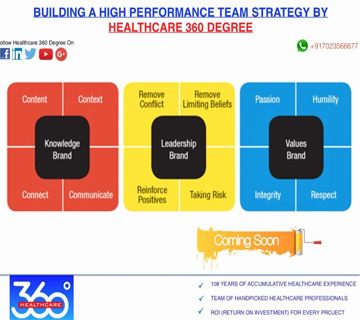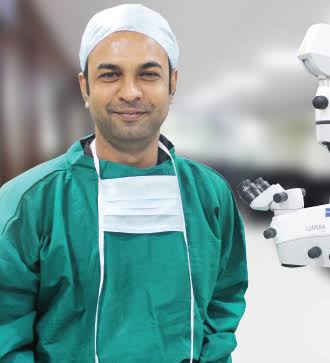Healthcare is one of the leading providers of technology and innovation. The healthcare industry has changed significantly over the last few decades. In the coming years, it is expected to expand with the introduction of AI-based healthcare applications.
The question is can AI read Images better than Humans / Doc’s / Radiologist ? I find something interesting facts which would like to share ...
Preliminary Diagnosis - AI can provide a preliminary diagnosis based on medical images, symptoms, and other clinical data.
AI algorithms can analyze large amounts of medical data and detect patterns that may be difficult for human experts to detect. For example, an AI system may be able to identify certain patterns in a medical image that are indicative of a particular disease, such as cancer or heart disease.
In some cases, an AI system can even provide a preliminary diagnosis based on the data it has analyzed. This can help to speed up the diagnostic process and provide patients with faster access to treatment . AI can be used to analyze a wide range of diagnostic images .....
- X-rays: AI algorithms can be trained to detect abnormalities in X-rays, such as fractures, tumors, and other conditions.
- CT scans: AI can assist in the detection of lung nodules, lung cancer, and other abnormalities in CT scans.
- MRI scans: AI can help identify brain tumors, breast cancer, and other conditions on MRI scans.
- Ultrasound: AI can be used to detect anomalies in fetal development, blood flow issues, and other conditions on ultrasound images.
- Mammography: AI can help detect early signs of breast cancer on mammograms.
- Retinal images: AI can be used to analyze retinal images for early detection of eye diseases such as age-related macular degeneration and diabetic retinopathy.
- Skin images: AI can help identify skin lesions, moles, and other features on images of the skin, aiding in the detection of skin cancer.
Step by Step deeper Diagnosis .
- Chest X-rays for pneumonia detection: AI algorithms have been developed that can read chest X-rays and detect signs of pneumonia, allowing for faster and more accurate diagnosis.
- Colonoscopy images for polyp detection: AI can analyze colonoscopy images to detect and classify polyps in the colon, which can be a sign of colorectal cancer.
- Brain MRI scans for Alzheimer's disease detection: AI algorithms have been developed that can analyze brain MRI scans and identify early signs of Alzheimer's disease, potentially allowing for earlier intervention and treatment.
- Lung CT scans for lung cancer detection: AI can assist in the detection of lung nodules and other abnormalities in lung CT scans, which can be signs of lung cancer.
- Echocardiography images for heart disease detection: AI can analyze echocardiography images to identify signs of heart disease, including heart failure, valve disease, and other conditions.
- Skin lesion images for melanoma detection: AI can help dermatologists identify potential skin cancer lesions by analyzing images of skin lesions for various features and characteristics.
Some more interesting diagnosis
- Ophthalmology images for diabetic retinopathy detection: AI can analyze retinal images to detect early signs of diabetic retinopathy, a complication of diabetes that can lead to blindness.
- Mammography images for breast cancer detection: AI algorithms can assist in the detection of breast cancer by analyzing mammography images for signs of suspicious lesions or masses.
- Dermatology images for psoriasis detection: AI can be used to analyze dermatology images and assist in the diagnosis of psoriasis, a chronic skin condition.
- MRI scans for multiple sclerosis (MS) detection: AI can analyze MRI scans to detect early signs of MS, a neurological disorder that affects the brain and spinal cord.
- Nuclear medicine images for cancer detection: AI can be used to analyze nuclear medicine images, such as PET scans and SPECT scans, to detect cancerous lesions in the body.
- Endoscopy images for digestive disorders detection: AI algorithms can analyze endoscopy images to detect signs of digestive disorders, including ulcers, polyps, and tumors.
- Radiography images for bone fracture detection: AI can assist in the detection of bone fractures by analyzing radiography images for signs of bone damage.
Issues and Challenges
Every aspect has its pros and cons. With the tumult of advantages, the use of AI brings ethical, social, and technical issues with it. Some of the major concerns that can hinder the widespread adoption of AI in healthcare include:
- Data privacy and security – Data privacy and security is always a big challenge for internet-based services. Similarly in the case of AI-enabled healthcare services that collect, store, and analyze large amounts of data, need to be confident that their sensitive information is safe, secure, and well-protected.
- High costs of creation and maintenance – Initially the cost of implementing AI services is quite high and apart from this it requires regular up-gradation and maintenance cost.
- Lack of standard rule and regulation – Different countries worldwide follow different Data Protection Laws. There is a lack of uniformity in data handling and storage. Similarly, the law pertaining to fraud detection, privacy, a criminal investigation, and trade negotiations policies vary widely. However, a uniformed regulatory framework and policy can significantly address these legal issues associated with AI in healthcare.
Way ahead
As of now the use of AI is limited for pre-defined problems or to carry out some specific routine tasks. now a days , Operational inefficiencies are one of the major issues for the healthcare industry. The AI has the potential to overcome challenges such as handling patient flow, hospital administration, designing treatment plans, and the optimal use of healthcare resources. Addressing all these critical issues can bring operational efficiency for healthcare organizations. Similarly, the AI has the capability to diagnose & predict the disease at a much higher rate than the professional. It saves a lot of time and effort put forward by healthcare professionals. Apart from these, AI has many other benefits and advantages such as a higher accuracy rate for clinical data interpretation, medical diagnosis, reducing the workload of nurses and medical support personnel, and many others.
Companies that are working in the space of AI in healthcare and medical data analysis:
- IBM Watson Health - IBM's Watson Health division uses AI to analyze health data and provide insights for clinical decision-making.
- Google Health - Google's healthcare division is developing AI tools for medical imaging analysis, electronic health records, and clinical decision support.
- GE Healthcare - GE Healthcare uses AI to analyze medical images and help clinicians make more accurate and efficient diagnoses.
- NVIDIA - NVIDIA's healthcare division provides AI solutions for medical imaging, drug discovery, and genomics analysis.
- Philips Healthcare - Philips Healthcare uses AI to analyze medical images and improve patient care in areas such as cardiology, radiology, and oncology.
- DeepMind Health - DeepMind, a subsidiary of Alphabet, uses AI to analyze health data and improve patient outcomes in areas such as acute kidney injury, retinal disease, and breast cancer.
There are many start ups who are already working in these space - Paige , Caption Health , Niramai , Viz.ai , Arterys , Kheiron Medical .....
AI has the potential to bring many advantages to the healthcare industry beyond the diagnostic capabilities .
- Improved patient outcomes: AI can help healthcare providers to identify potential health issues earlier, enabling them to provide preventative care that could prevent chronic conditions or even save lives.
- Enhanced efficiency: AI can automate many administrative tasks, such as appointment scheduling and medical coding, reducing the workload of healthcare professionals and freeing up time for more valuable tasks, such as patient care.
- Cost savings: By streamlining administrative tasks and improving patient outcomes, AI can help reduce healthcare costs, making healthcare more affordable for patients and providers.
- Personalized medicine: AI can help healthcare providers personalize treatment plans for individual patients, taking into account their medical history, lifestyle, and other relevant factors.
- Drug discovery: AI can help researchers discover new drugs and treatments by analyzing large amounts of data, such as medical records, research papers, and scientific databases.
- Medical imaging analysis: As we discussed earlier, AI can help to interpret medical images, such as CT scans and X-rays, improving diagnostic accuracy and reducing the need for invasive tests.
Disclaimer - "I would like to convey that it was never my intention to cause offence or hurt anyone's sentiments. I sincerely apologise if my actions or words were interpreted in a way that may have caused any discomfort or hurt. It was not my intention and I will strive to be more mindful in the future.”
If you need any support in Market Feasibility Study of a new hospital , Hospital Planning and Design / Hospital Architect & Layout / Hospital 3 D Walkthrough / Hospital Marketing & Operations / JCI Accreditation / NABH Accreditation / Training & Development / Improving the Quality of Hospital / Re-Designing the existing Hospital or Hospital Fund Raising , you can contact us : [email protected] Or you can visit our website www.hc360.in or can call +917023566677 .











































